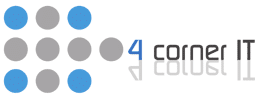When working remotely, you must be vigilant about cybersecurity to protect critical information and prevent cyber threats. Your home office might seem secure, but cybercriminals are adept at exploiting vulnerabilities. Ensuring your remote work setup is secure involves more than just the basics. Stay tuned to discover essential strategies and tools to bolster your defenses and safeguard your digital workspace effectively.
Remote Access Security Measures
When working remotely, ensure you have robust remote access security measures to safeguard your data and devices. As remote workers, you must be vigilant against security risks such as unauthorized device access. Multi-factor authentication adds an extra layer of protection, ensuring that only authorized individuals can access your information.
To enhance security:
- Familiarize yourself with your company’s security policies and adhere to established security controls.
- Avoid compromising remote access by implementing additional security measures recommended by your IT department.
- Be cautious when connecting to public Wi-Fi networks, as they pose significant security threats.
Data Encryption Protocols
Enhance your data security by implementing robust encryption protocols to protect sensitive information from unauthorized access. In remote work environments, where employees access company networks from various locations, data encryption is essential to safeguard against cyber threats. By utilizing encryption protocols, you can guarantee that data transmitted between remote employees and company servers remains secure, reducing the cyber risk your organization faces.
Security teams should prioritize using virtual private networks (VPNs) to establish secure connections for remote workers. VPNs encrypt data traffic, shielding it from potential interception by cybercriminals seeking to exploit vulnerabilities in network security. This encryption adds an extra layer of protection, minimizing the attack surface available to malicious actors attempting to breach your systems.
Implementing data encryption protocols is a proactive security measure that can mitigate the risks associated with phishing attacks and unauthorized access to sensitive information. By making encryption a standard practice for all remote access, you can significantly enhance your cybersecurity defenses.
Multi-factor Authentication Implementation
To further strengthen your remote work security, consider implementing multi-factor authentication to protect against unauthorized access attempts.
Multi-factor authentication requires users to verify their identity through two or more methods, such as passwords, security tokens, or biometric verification. This additional layer of security significantly reduces the risk of unauthorized access, even if login credentials are compromised.
Implementing multi-factor authentication is vital for safeguarding sensitive data and systems. Security tools like multi-factor authentication help cyber security teams mitigate the risk of unauthorized access attempts.
By requiring multiple forms of verification, multi-factor authentication acts as a barrier against potential entry by cyber criminals.
Security leaders emphasize the importance of regularly updating security patches and ensuring a secure connection when implementing multi-factor authentication. Increasing cyber security awareness among employees about the benefits of multi-factor authentication is essential to create a culture of vigilance and proactive security measures in remote work environments.
Virtual Private Network (VPN) Usage
Consider utilizing a Virtual Private Network (VPN) to secure your remote work environment and protect sensitive data from cyber threats. A VPN creates a secure connection to the corporate network, adding an essential layer of security for remote workers in a hybrid work environment. A VPN helps safeguard against security breaches and potential cyber threats when connecting to unsecured networks like public Wi-Fi networks.
Using a VPN, you can encrypt your internet traffic, making it harder for malicious actors to intercept sensitive information. This encryption is vital in preventing security incidents that could compromise valuable data. For the remote workforce, especially those working from various locations, a VPN is a reliable tool to maintain the integrity of your communications and online activities.
Make it a habit to activate your VPN whenever you access company resources remotely. This simple yet effective step can significantly enhance the security of your remote work setup and provide peace of mind, knowing that your data is better protected.
Employee Cybersecurity Training
Provide all employees with thorough cybersecurity training to mitigate potential security risks and protect sensitive company information. In today’s hybrid work model, where office workers blend remote and in-office work, understanding how to safeguard corporate security is paramount. Employee cybersecurity training should cover essential topics such as recognizing social engineering attacks, creating and maintaining strong passwords, the importance of regular software updates, and identifying and avoiding ransomware attacks.
One critical aspect of employee cybersecurity training is emphasizing the significance of using strong passwords and avoiding weak ones that could compromise company data. Educate employees on the risks of connecting to unsecured Wi-Fi networks and the potential threats they pose.
Creating a Secure Remote Work Environment
To sum up, you can effectively navigate cybersecurity challenges while working remotely by implementing remote access security measures, utilizing data encryption protocols, and providing employee cybersecurity training.
Stay vigilant against potential cyber threats and always prioritize the security of sensitive data. Avoid public Wi-Fi networks and use multi-factor authentication to enhance your cybersecurity defenses.
With these proactive measures in place, you and your team can create a secure remote work environment.
Ready to take your remote work security to the next level? Partner with 4 Corner IT, a WheelHouse IT company, to implement robust cybersecurity solutions tailored to your needs. Protect your data using multi-factor authentication, encryption protocols, and VPN usage. Don’t wait until it’s too late – safeguard your digital workspace effectively today!

